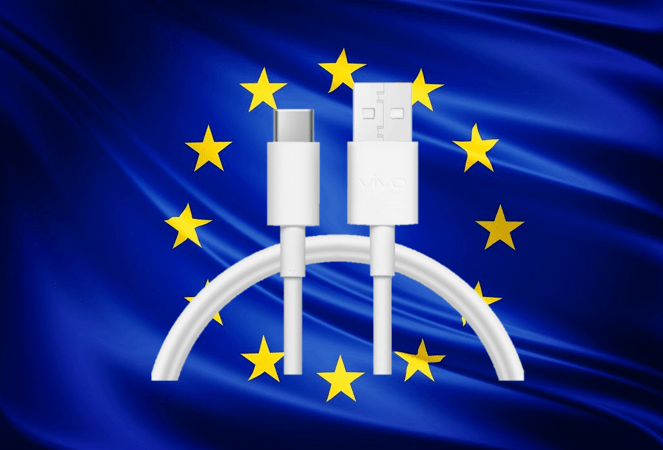European Parliament recently passed a law that states and made it mandatory the use of USB Type-C as a universal charging port for various consumer electronic devices including iPhone and AirPods by the end of 2024.
As per the news reports, the new regulation states that from autumn 2024, all the smartphones and devices such as tablets, headsets, mice, speakers, cameras, and more must follow the rule of having a single type of port that is USB Type-C, hence it will become the standard for all devices going to supply in Europe. Whereas, for laptops, by 2026 it will be compulsory to use TYPE-C as a charging port. And there will not be any special discount for Apple, the company also has to follow the norms and implement a USB TYPE-C port in all its devices.
The voting to pass this law was favored by 602 members whereas 13 were against it and eight were absent. Hence it has been clear the law was supported overwhelmingly by European Parliament members.
The regulation’s lead legislator, Maltese MP Alex Agis Saliba from the center-left Socialist and Democratic Party, said: “This simple solution will save thousands of tonnes of e-waste every year, boosts old electronics reusage, increases the convenience for consumers, reduces unnecessary costs.” He hopes the EU move will set an example for the rest of the world.
Margrethe Vestager, the executive vice-chairman of the commission, said – a similar connector charger is not only good for the environment, but also for consumers, meaning savings of at least 250 million euros a year.
According to the European Commission, chargers generate 11,000 to 13,000 tonnes of e-waste each year, and the new rules are expected to significantly reduce this amount. However, this is only a small part of the ocean of e-waste, that the EU collected in 2019 totaling 4.5 million tonnes.
However, this EU move has been resisted by smartphone makers for years which is standardized now. Well, about a decade ago, the industry reached an agreement with the commission that promised to slowly reduce the gap between the technologies used to charge the devices. Indeed, some results have been seen towards this, however, the EU was not satisfied with the progress and in 2020 it has doubled down on its call on the committee to come up with judicial proposals to solve the issue.
The committee will also regulate and standardize wireless charging technology within two years after the regulation takes effect.
In June, the three EU agencies agreed on the details of a common charger. And the European governments are expected to finalize the approval at an Environment Council meeting on October 24. After that, within six months, EU countries have to incorporate it into their national laws.

Related Posts
Is it OK to use your smartphone while charging? Let’s find out
List of iPhone OS released in the 15 years since its birth- History
EU passed a law, from 2024 smartphones must use USB-C port including Apple
How to Get Rid of Ads in Android While browsing Internet
How to access and use Smart Lock in Android
How to make your Android phone run faster and smoother